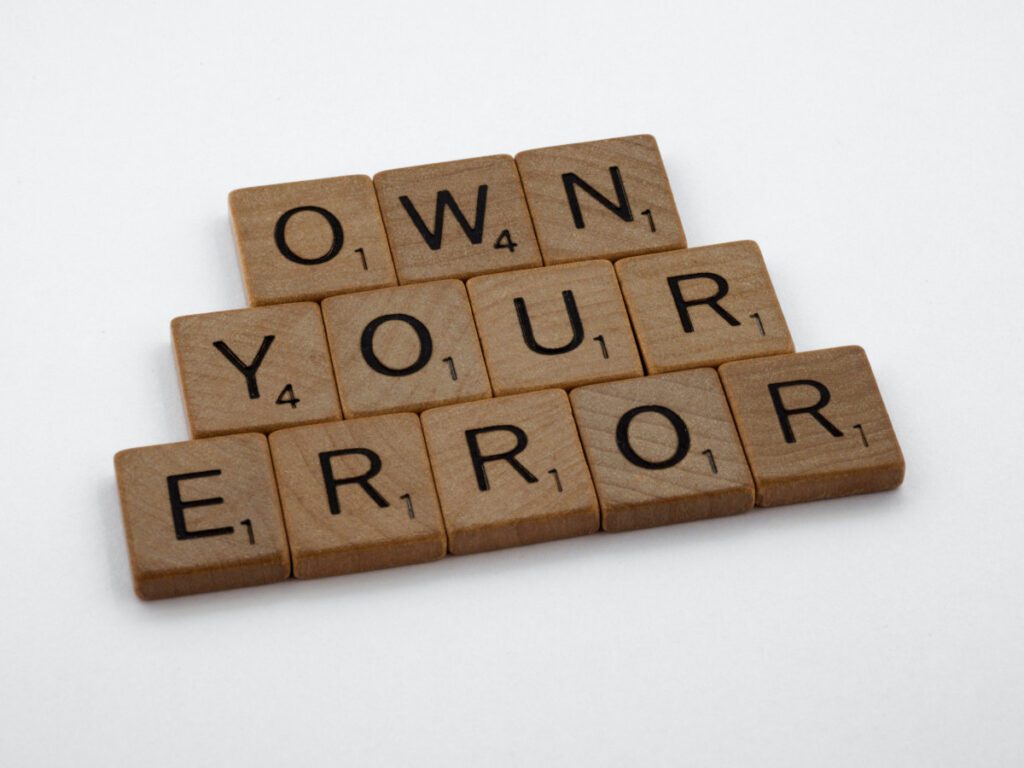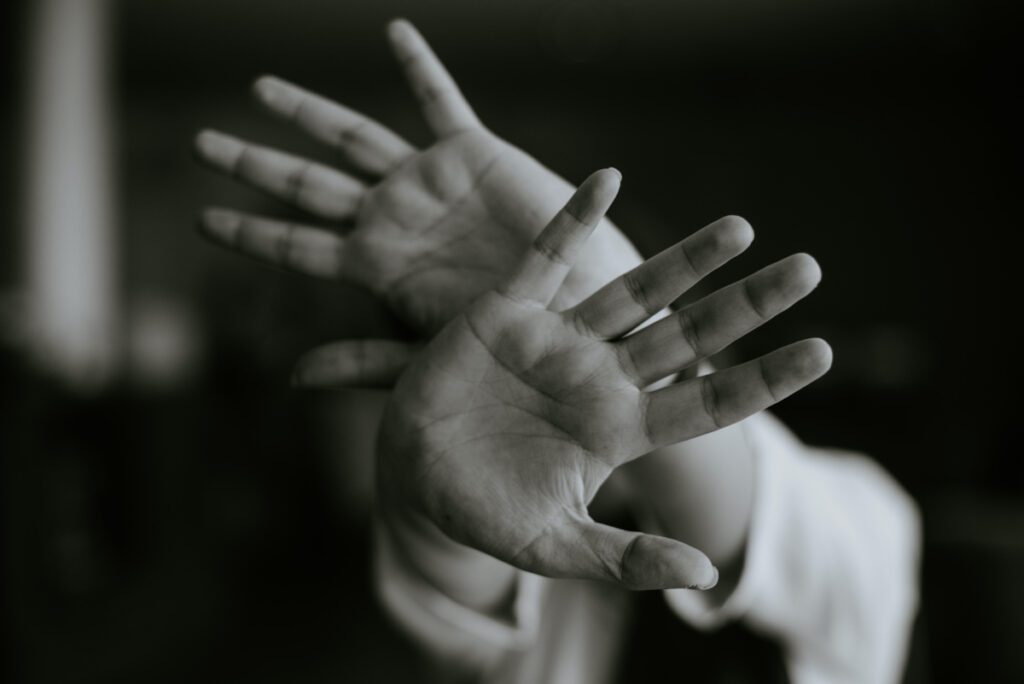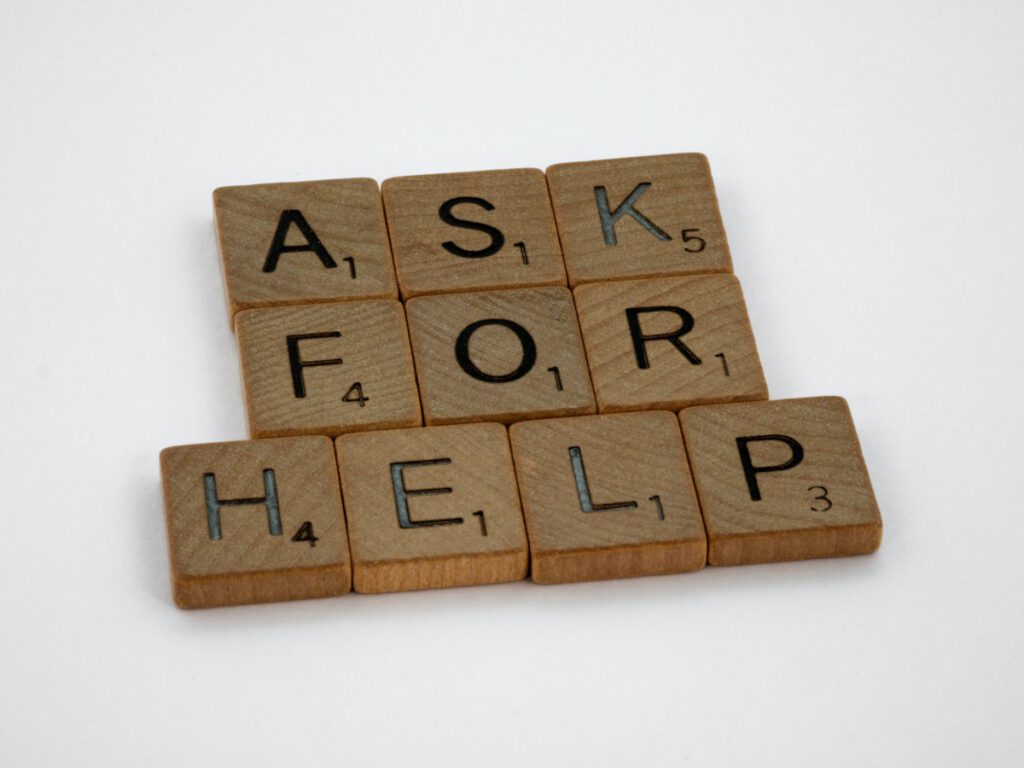Seemingly innocent expressions may have served as a defense mechanism in our early years, but as we grow older, they can become detrimental to our self-esteem and hinder personal growth. Read on to explore how these habitual defenses are still used in adulthood and continue to limit our potential and opportunities.

Redundant REFLEX RESPONSES :
I don’t know…
The familiar childhood response of “I don’t know” may seem like an innocuous statement, but when carried into adulthood, it can inadvertently perpetuate poor self-confidence. This phrase, often used as a defense mechanism to avoid vulnerability or the fear of failure, can become a self-fulfilling prophecy that undermines our belief in our own abilities.

For instance, imagine being offered a promotion at work that requires learning new skills. Instead of embracing the challenge, you might resort to saying, “I don’t know how to do that,” believing it shields you from potential disappointment. However, this habitual defense not only maintains your low self-belief but also limits opportunities for personal and professional growth.
To counteract this behavior, it’s crucial to recognize the power of your words and shift your mindset. Instead of saying “I don’t know,” you can adopt phrases like “I’m willing to learn” or “I’ll give it my best shot.”
By doing so, you can cultivate a more positive, growth-oriented attitude that fosters self-confidence and opens doors to new possibilities.
I have never done it before, so…
The childhood response of “I have never done it before, so…” when faced with challenges is another seemingly harmless phrase that can have a lasting impact on our self-confidence as adults. This statement often serves as an excuse to avoid trying new things, inadvertently reinforcing the notion that we are incapable of learning or adapting.

For example, you are invited to join a sports team or take up a new hobby. Instead of seizing the opportunity, you might say, “I have never done it before, so I won’t be any good at it,” effectively closing the door on potential growth and enjoyment.
Resorting to this habitual defense stifles personal development and perpetuates poor self-esteem. To overcome this mindset, it’s essential to recognize that everyone starts as a beginner at some point. It’s through practice and perseverance that we improve.
By reframing our thoughts and embracing the mantra “I may not have done it before, but I’m willing to give it a try,” you can foster a more resilient, confident attitude that enables you to embrace new experiences and unlock your potential.
It wasn’t me…
Saying “It wasn’t me…” when confronted with challenges or mistakes, can inadvertently extend into adulthood. This phrase is often employed as a means to avoid responsibility and the potential consequences that come with it.

For instance, imagine making an error in a work project and, when questioned about it, responding with “It wasn’t me,” even though evidence suggests otherwise.
Resorting to this habitual avoidance defense undermines who you are to yourself and others. It can keep you trapped and limit opportunities for the development of trust in relationships.
To counteract this behavior, it’s crucial to embrace accountability and own your mistakes. By doing so, you demonstrate integrity, learn from your errors, and foster an environment of continuous improvement.
Additionally, owning up to your actions can lead to increased respect from others, as it highlights your honesty and commitment to self-improvement.
However, it’s equally important not to falsely attribute blame to yourself when you are genuinely innocent. In such cases, assertively and respectfully clarifying the situation helps maintain your credibility while preserving the integrity of your character.
By striking a balance between taking responsibility when appropriate and standing up for yourself when necessary, you can cultivate greater self-confidence and pave the way for personal and professional growth.
I can’t…
The reflex reply of “I can’t” when faced with challenges is a seemingly innocent phrase that can have long-lasting effects on your self-confidence as an adult It becomes a self-fulfilling prophecy and blanket statement of your limited belief in yourself.
This statement often develops as a protective mechanism, shielding you from the fear of failure or disappointment. However, by habitually resorting to “I can’t,” you inadvertently reinforce your difficulties and hinder your personal growth.

For example, you are asked to speak in public or take on a leadership role. Instead of seizing the chance to develop new skills and push personal boundaries, you might say, “I can’t do that; I’m not a good speaker or leader.” Can you see how this closes doors and sabotages opportunities for yourself?
To break free from this cycle, it’s essential to challenge your self-imposed limitations and reframe your thoughts. Instead of saying “I can’t,” you can adopt more empowering language like “I’ll try my best” or “I can learn to do that.” By doing so, you start to shift your mindset towards a more positive, growth-oriented attitude that can foster self-confidence and encourage you to embrace new opportunities.
Also, surrounding yourself with supportive people who believe in your abilities can further help you to overcome the “I can’t” mentality and unlock your true potential. If you feel courageous enough, you may even want to ask them to call you out when you use this blocking statement. Then you can pause to challenge yourself to find out what it actually is you are reacting to. Whether this is something you truly believe you cannot or are unwilling to do? And do you want to broadcast to everyone and yourself this defining statement about yourself?
I’m always clumsy/bad at guessing etc
The response of “I’m always clumsy/bad at this type of thing…” is another seemingly innocuous phrase that can have a lasting impact on your self-confidence when carried over as a habit into adulthood.

This statement often stems from a fear of judgment or ridicule and serves as a ready-made defense for potential failure. However, by routinely resorting to such self-deprecating language, you inadvertently reinforce negative self-perceptions and maintain poor self-esteem.
For example, if you are faced with a challenge like learning a new dance routine or solving a complex problem, you might say, “I’m always clumsy/bad at this type of thing, so I won’t even try.”To overcome this limiting mindset, it’s essential to recognize the power of your words and consciously reframe your thoughts.
Instead of focusing on perceived weaknesses, you can adopt more positive, growth-oriented phrases like “I may not be perfect, but I’ll give it my best shot” or “I’m excited to learn and improve.” By doing so, you can foster a more resilient, confident attitude that enables you to embrace challenges and seize opportunities for personal growth.

Seeking out helpful, encouraging feedback and celebrating small victories can help you break free from the cycle of self-doubt and unlock our true potential. Trying a new approach in one area of your life can also have the knock-on effect of helping you to do so in other areas of your life, with even greater potential benefits.
As you can now see, it’s essential to recognize that your childhood responses to challenges, although once useful in protecting your vulnerable self, can hold you back from reaching your full potential as an adult.
By acknowledging the impact of phrases like “I don’t know,” “I’ve never done that before,” “It wasn’t me,” “I can’t,” and “I’m always clumsy” on your self-confidence, you can begin to take apart these barriers and foster a healthier self-image. Instead of resorting to these habitual defenses, challenge yourself to embrace new experiences, take responsibility for your actions, and believe in your capabilities.
Remember, it’s never too late to change your mindset and develop the confidence necessary to seize life’s opportunities.